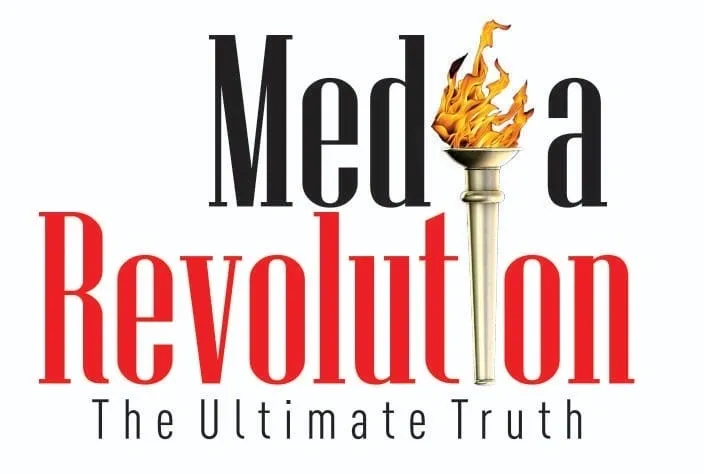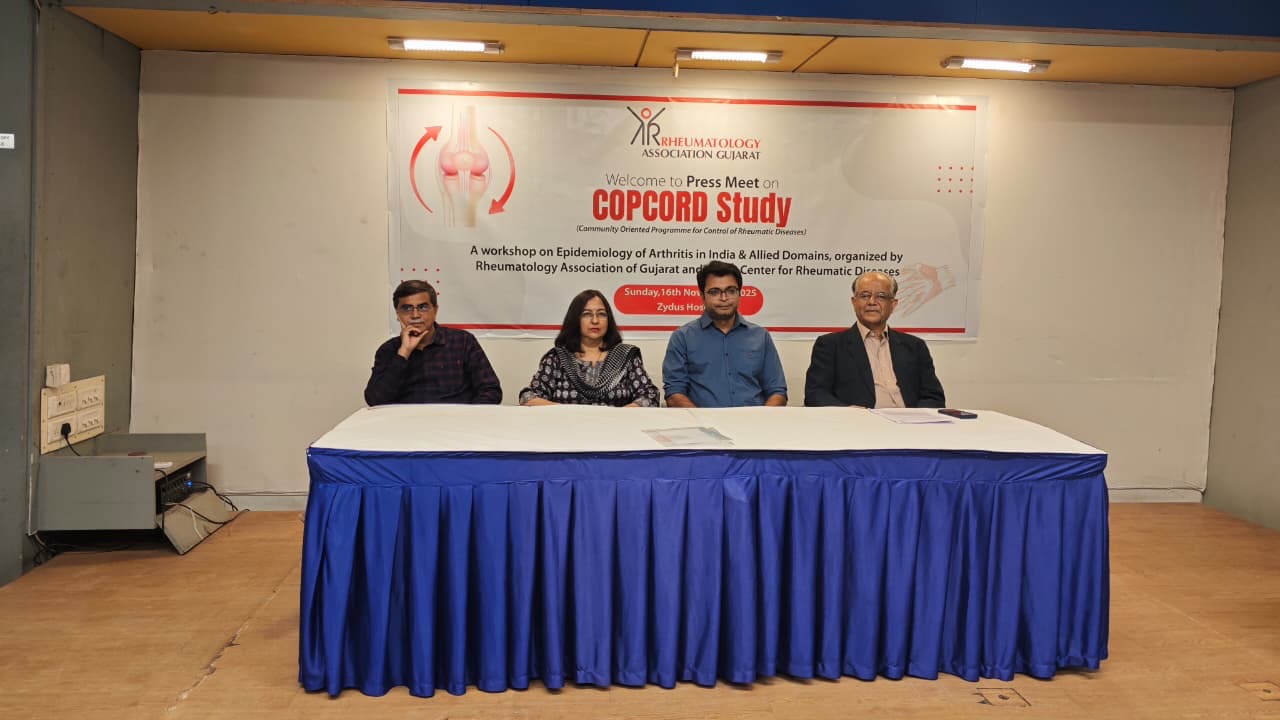The Rheumatology Association Gujarat (RAG) is hosting a two-day academic conclave on November 15 and 16, bringing together leading experts, clinicians, researchers, and postgraduate students for an intensive weekend of learning, collaboration, and scientific exchange.
The conclave will feature two of India’s most distinguished figures in rheumatology, Dr. Arvind Chopra, Ayush Distinguished Scientist Chair and Director, Centre for Rheumatic Diseases, Pune, and Dr. Durga Prasanna Misra, Editor-in-Chief of Indian Journal of Rheumatology and Professor, Department of Clinical Immunology & Rheumatology, SGPGI, Lucknow.
Sharing details about the event, Dr. Reena Sharma, President of the Rheumatology Association Gujarat, said, “Rheumatic and musculoskeletal disorders are among the most prevalent and burdensome conditions in India, but are neglected and under-reported. With over 19.5 crore Indians living with arthritis-related pain, there is an urgent need for greater awareness, better integration between modern and traditional systems, and stronger clinical collaboration. This meeting aims to address exactly that by uniting diverse disciplines on a common platform to advance understanding and improve patient outcomes.”
According to recent data published by Dr. Chopra and colleagues under the WHO’s Community Oriented Programme for Control of Rheumatic Diseases (COPCORD), nearly 65% of arthritis sufferers in India are women, and one in five women in the country experiences bone and joint pain of a rheumatic nature. The team has completed 21 surveys covering more than 55,000 people, including 60% in rural areas.
The prevalence of rheumatoid arthritis (RA) is estimated at 0.5 to 0.8%. An earlier survey found 42 lakh cases of RA, including 35.1 lakh women and 11.7 lakh in young, reproductive-age women, reflects the immense social and economic impact of these disorders.
Additionally, 5.4 crore Indians live with osteoarthritis, commonly affecting the knees and spine. Osteoarthritis and lower back pain are the most common causes of disability. More than 1.72 crore people experience diffuse or localised musculoskeletal pain linked to occupational strain, stress, or poor lifestyle habits.
“Women are more prone to rheumatic diseases, while obesity, age, manual labour, tobacco consumption, and low socio-economic status are the other key risk factors,” said Dr. Chopra, who has been conducting COPCORD surveys since 1996 and is the Chief Coordinator of India in global COPCORD studies.
Against this backdrop, the two-day conference will explore epidemiology, clinical management, public health perspectives, and integrative approaches to arthritis and autoimmune rheumatic diseases.
The conference will also mark the beginning of a new COPCORD survey, which will screen around 7,000 people in rural parts of Gujarat. The survey will focus on the incidence and prevalence of all kinds of rheumatic disease, not just arthritis. The data collection and publication will take around 6-8 months.
On the first day of the conference, scientific sessions will address critical frontline challenges such as “Epidemiology and Management of Chikungunya Fever and Post-Chikungunya Arthritis”, “Clues to Clinch the Diagnosis of Vasculitis in Medical OPDs”, and “Common Clinical Dilemmas in Patients with Pre-existing Autoimmune Rheumatic Disease”.
The following day will see sessions focusing on “Burden of Arthritis: A COPCORD Data Perspective” by Dr. Arvind Chopra, and “Arthritis: An Ayurvedic Perspective,” followed by interactive sessions on “Function and Quality of Life” and a hands-on workshop on Quality of Life (QOL) assessment.
Another highlight of the conference will be the Scientific Writing Workshop, offering young clinicians and researchers practical insights into medical publishing. The sessions include “Beyond the p-value: Weaving Statistics into a Compelling Narrative,” “Anatomy of a Manuscript: A Deep Dive into the IMRaD Framework,” and “Thinking Like a Reviewer: A Live Manuscript Autopsy”.
The event aims to promote multidisciplinary collaboration between rheumatology, internal medicine, public health, and Ayurvedic systems, a model of integrative learning that aligns with India’s growing emphasis on evidence-based holistic medicine.
Dr. Reena Sharma added, “Our goal is to create a platform that empowers clinicians and researchers to combine scientific precision with compassionate patient care. By linking modern rheumatology with Ayurveda and public health, we can move closer to developing effective strategies for prevention and control of arthritis and related disorders.”
The two-day meeting promises to be an important step forward in understanding the burden, spectrum, and societal impact of arthritis in India, and in strengthening the bridge between science, service, and society.
The faculty and postgraduate students from Medicine and Rheumatology, Community Medicine and Kayachikitsa (Ayurveda) from several medical institutions and colleges are participating in the meeting. Dr. Sapan Pandya, Vice-President Indian Rheumatology Association and Senior Rheumatologist in Ahmedabad, Dr. Deepak Saxena, Director of IIPH Ahmedabad, and Dr. Kiran Kale, Ayurveda Physician and Assistant Director of CCRAS, Ahmedabad, are coordinating the event.
Similar integrative meetings were organised in New Delhi, Pune, Gorakhpur, and Varanasi during August and October 2025 to discuss arthritis and increase awareness and knowledge in the community and medical faculty. Following Ahmedabad, similar conferences are planned in Calicut, Bangalore, Chennai, Hyderabad, Kolkata, and Guwahati.





